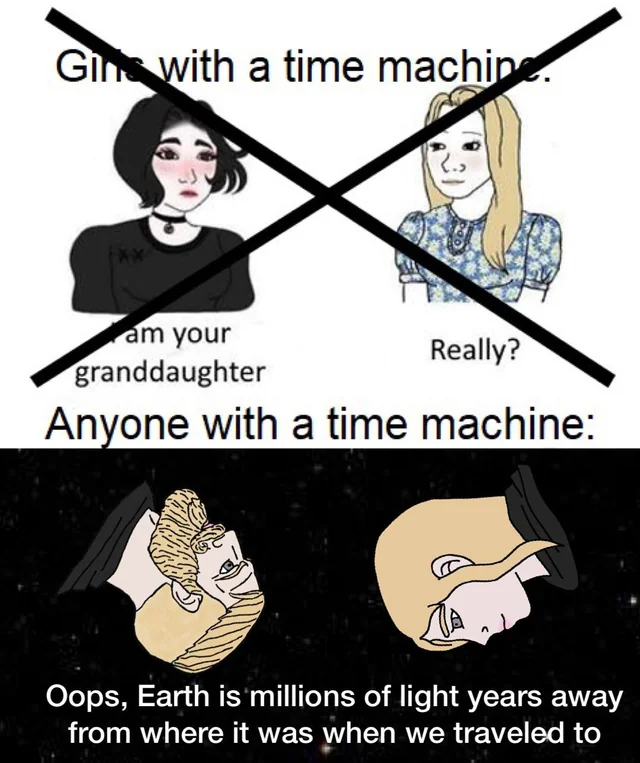this post was submitted on 14 Apr 2024
1246 points (95.5% liked)
Science Memes
10542 readers
2592 users here now
Welcome to c/science_memes @ Mander.xyz!
A place for majestic STEMLORD peacocking, as well as memes about the realities of working in a lab.

Rules
- Don't throw mud. Behave like an intellectual and remember the human.
- Keep it rooted (on topic).
- No spam.
- Infographics welcome, get schooled.
Research Committee
Other Mander Communities
Science and Research
Biology and Life Sciences
- [email protected]
- [email protected]
- [email protected]
- [email protected]
- [email protected]
- [email protected]
- [email protected]
- [email protected]
- [email protected]
- [email protected]
- [email protected]
- [email protected]
- [email protected]
- [email protected]
- [email protected]
- [email protected]
- [email protected]
- [email protected]
- [email protected]
- [email protected]
- [email protected]
- [email protected]
- [email protected]
- [email protected]
- !reptiles and [email protected]
Physical Sciences
- [email protected]
- [email protected]
- [email protected]
- [email protected]
- [email protected]
- [email protected]
- [email protected]
- [email protected]
- [email protected]
Humanities and Social Sciences
Practical and Applied Sciences
- !exercise-and [email protected]
- [email protected]
- !self [email protected]
- [email protected]
- [email protected]
- [email protected]
Memes
Miscellaneous
founded 2 years ago
MODERATORS
you are viewing a single comment's thread
view the rest of the comments
view the rest of the comments

I have heard that notion before, but don't know how the maths is supposed to work.
I can tell you, though, that light would be going faster than light, if it could.
Here's a simple equation you probably know:
F = m * a
(F is force, m is mass, a is acceleration)
Well, if you rearrange it, you get this:
a = F / m
We currently believe photons to have no mass.
Insert that into the equation and you get a division by zero, but our closest approximation means acceleration is infinite, as soon as any non-zero force is applied.
Infinite acceleration results in immediate infinite velocity. It makes no sense for light to only accelerate until 300,000 km/s and then take its foot off the gas pedal.
This is why it's instead believed that there is a speed limit to causality itself.
The speed of light (as well as of gravitational waves and other massless things) just happens to be the same value, because they're going as fast as is possible.
Here's a video about the speed of causality: https://www.pbs.org/video/pbs-space-time-speed-light-not-about-light/